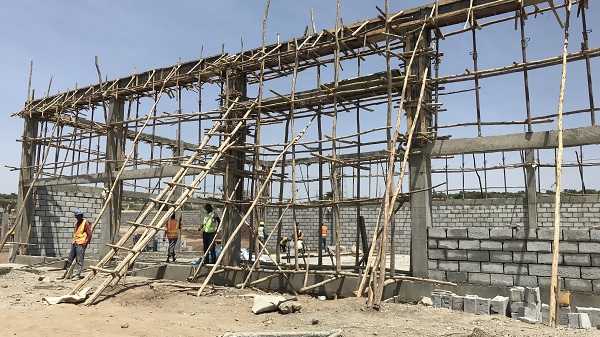
The Ethiopian government has started building its first medical waste incinerator facility outside the capital city of Addis Ababa to burn expired pills, and has committed to building seven more around the country.
By Dan Shine (Global Michigan)
ANN ARBOR, MI– A group of business leaders are partnering with the William Davidson Institute (WDI) at University of Michigan to find financially and ecologically sustainable solutions to Ethiopia’s medical waste problem.
While Ethiopia has official directives that mandate the proper and timely disposal of medical waste, enforcement often has been challenging. This has resulted in warehouses full of expired pharmaceuticals along with biomedical waste generated by hospitals and other healthcare facilities.
The government has started building its first medical waste incinerator facility outside the capital city of Addis Ababa to burn expired pills, and has committed to building seven more around the country.
A group of Ethiopian business managers led by Mel Negussie and Tamrat Bekele are interested in managing the business aspects of operating the incinerators and reached out to WDI to help them think through the business plan.
◌ Ethio-American Doctors Group (EADG): Building a regional healthcare system & medical tourism
WDI’s vice president of administration and publishing Claire Hogikyan traveled to Ethiopia in Fall 2018 on a fact-finding mission. At the end of her week-long visit, Hogikyan thought Negussie and his group needed to go in a different direction.
“While many expired pharmaceuticals can be incinerated, many cannot,” she said. For example, medications that are toxic or items such as inhalers that would explode when burned can not be incinerated. Additionally, there are ongoing environmental concerns that accompany incineration.
Hogikyan suggested an autoclave. An autoclave uses heat to disinfect the material and a grinder -similar to a kitchen sink disposal system enlarged and turned on its side. The disinfected and ground material is spit out onto a conveyor belt where a pulverizer breaks down the material further into indistinguishable components. The remaining waste is then dumped into plastic barrels which are shipped to a landfill and buried.
Most U.S. hospitals, including at the University of Michigan, use an autoclave to properly dispose of expired pharmaceuticals as well as biomedical waste.
Read the complete story at Global Michigan
